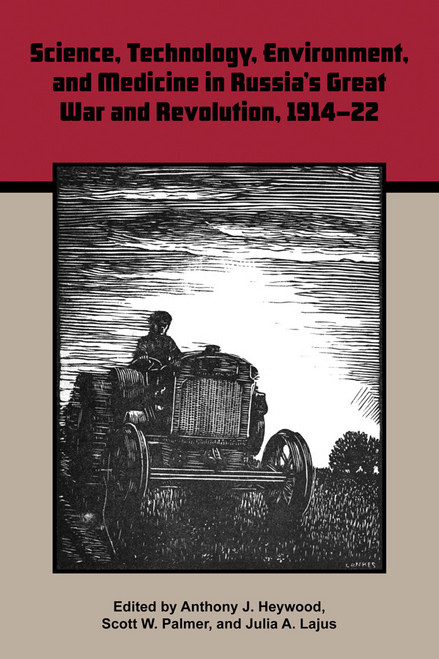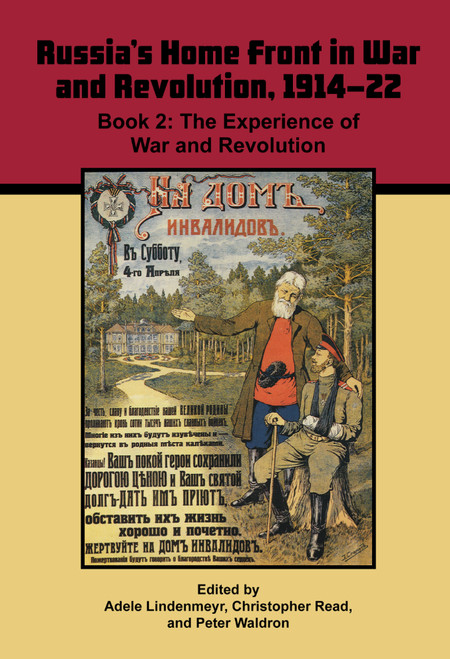Product Overview
World War I, followed by four more years of revolution and civil conflict, exerted its power to both liberate and destroy in Russia on a scale unsurpassed elsewhere in Europe. It accelerated improvements in women’s status and employment opportunities, culminating with the gain of full political rights after the overthrow of the monarchy in February 1917. The Bolshevik Revolution in October 1917 ushered in a new leadership and political system that proclaimed sweeping economic and social equality for women as its goal, not mere “bourgeois” rights. At the same time, war and revolution subjected women and men to extreme violence and insecurity and upended gender expectations. Individual historians have investigated various problems in the history of women and gender in Russia during this period, but the field still lags behind the extensive historiography of gender and war in Europe.
This volume brings together scholars from Russia, Great Britain, and North America to examine women’s experiences and changing gender norms during Russia’s crisis years. Looking beyond rhetoric about women’s wartime service and ideological proclamations of emancipation, the authors seek to understand how years of military combat, political upheaval, and social transformation affected lives and redefined concepts of citizenship, patriotism, and gender. Since no one volume can encompass the vast scope and depth of these topics, the contributors hope that their work will encourage others to undertake research on women and gender in Russia’s Great War and Revolution.
Adele Lindenmeyr and Melissa K. Stockdale, Introduction
https://doi.org/10.52500/YNQH7079
Anthony J. Heywood, Women Workers in Wartime Tsarist Russia, 1914–17: Hiring Policy in the Railroad Industry
https://doi.org/10.52500/SRPZ5718
Denis Davydov and Olga Kozlova, Emancipation “Soviet-style”: Changes in the Status of Rural Women, 1914–27 (Based on Materials from Kazan´ Province and the Tatar Republic)
https://doi.org/10.52500/KRLT2463
Aleksandr Borisovich Astashov, Women’s Labor on Russia’s Defense in the First World War: Work and Gender
https://doi.org/10.52500/UVOB9715
Christine D. Worobec, Lived Religion Gendered: Representations and Practices of Russian Orthodoxy
https://doi.org/10.52500/UFGQ4627
Katherine McElvanney, Women and the Early Soviet Press
https://doi.org/10.52500/PQGH5270
Ronald P. Bobroff, En Garde! The Influence of Elite Masculinity on Russia’s Decision for War in July 1914
https://doi.org/10.52500/MRZZ2203
Steven G. Jug, Reconnoitering Masculine Subjectivities among Soldiers and Officers on Russia’s Military Fronts, 1914–17
https://doi.org/10.52500/YAZA7059
Boris I. Kolonitskii, Kerenskii as a “Woman”: The Delegitimization of a Politician in the Conditions of Revolution
https://doi.org/10.52500/FDTI2554
Pavel Vasilyev, Gendered Bodies on Trial: Exploring Litigation Strategies in the Early Soviet People’s Court
https://doi.org/10.52500/GRLV3532
Galina Ulianova, The Dowager Empress Mother Mariia Fedorovna during Russia’s Great War and Revolution
https://doi.org/10.52500/UQTF4501
David Borgmeyer, The Art of Natal´ia Goncharova and the Great War: Modernism and Conflict in Russia
https://doi.org/10.52500/IXTA7019
Stuart Finkel, Philanthropy, Politics, and Public Action: Ekaterina Peshkova in Wartime and Revolution
https://doi.org/10.52500/TVUL9560
Katy Turton, Gender, Political Culture, and the February Revolution
https://doi.org/10.52500/MURL9941
Olga Volkova, Two Voices from Russian Harbin: Gender Fluidity and Heroic Rhetoric in the Poetry of Arsenii Nesmelov and Marianna Kolosova
https://doi.org/10.52500/THRA5286
Karen Petrone, Gender and Civil War (1918–21) in Contemporary Russian Memory
https://doi.org/10.52500/NJCQ9185
Susan R. Grayzel, Situating Russia’s Great War and Revolution in the History of First World War Women and Gender
https://doi.org/10.52500/DQUP2796







